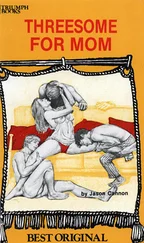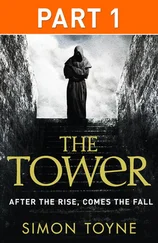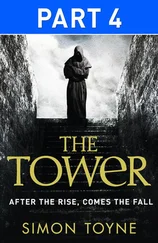Simon Foster - CHINA's Three Gorges & Xi'an
Здесь есть возможность читать онлайн «Simon Foster - CHINA's Three Gorges & Xi'an» весь текст электронной книги совершенно бесплатно (целиком полную версию без сокращений). В некоторых случаях можно слушать аудио, скачать через торрент в формате fb2 и присутствует краткое содержание. Год выпуска: 2010, Издательство: Hunter, Жанр: Старинная литература, на английском языке. Описание произведения, (предисловие) а так же отзывы посетителей доступны на портале библиотеки ЛибКат.
- Название:CHINA's Three Gorges & Xi'an
- Автор:
- Издательство:Hunter
- Жанр:
- Год:2010
- ISBN:нет данных
- Рейтинг книги:4 / 5. Голосов: 1
-
Избранное:Добавить в избранное
- Отзывы:
-
Ваша оценка:
- 80
- 1
- 2
- 3
- 4
- 5
CHINA's Three Gorges & Xi'an: краткое содержание, описание и аннотация
Предлагаем к чтению аннотацию, описание, краткое содержание или предисловие (зависит от того, что написал сам автор книги «CHINA's Three Gorges & Xi'an»). Если вы не нашли необходимую информацию о книге — напишите в комментариях, мы постараемся отыскать её.
CHINA's Three Gorges & Xi'an — читать онлайн бесплатно полную книгу (весь текст) целиком
Ниже представлен текст книги, разбитый по страницам. Система сохранения места последней прочитанной страницы, позволяет с удобством читать онлайн бесплатно книгу «CHINA's Three Gorges & Xi'an», без необходимости каждый раз заново искать на чём Вы остановились. Поставьте закладку, и сможете в любой момент перейти на страницу, на которой закончили чтение.
Интервал:
Закладка:
Broadening the Power Base
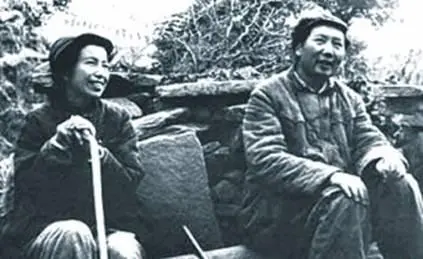
Mao with Jiang Qing
In the years prior to his death Mao Zedong was rarely seen and was often represented by his third wife, Jiang Qingand her radical supporters, who became known as the Gang of Four. Lin Biaohad been Mao's strongest supporter during the Cultural Revolution and was primed for leadership, but lost some of his power base as the army became less important. What followed is not exactly clear, but in 1972 it was reported that he had died the previous year in a plane crash en route to the Soviet Union. This might be true, but it is more likely that Lin Biao attempted a coup, was executed and then the story created in order to highlight his treachery. With his closest ally gone, Mao sought to expand his power base and Zhou Enlai's protégé, Deng Xiaoping, veteran of the Long March and victim of the Cultural Revolution, returned to office, while Hua Guofengwas preened as Mao's successor. Zhou Enlai had been pragmatically limiting the worst extremes of Mao Zedong's ideological policies since the party's inception and his tact and political skill helped China gain a seat in the UNin 1971 and establish trade links with the US after Nixon's visitin 1972.
Mao's Death & the End of the Gang of Four
However, in early 1976 Zhou Enlai died and, when radicals removed wreaths placed on the Heroes Monument in remembrance of him, a riot ensued. This became known as the Tian'anmen Incident, for which the recently returned Deng Xiaoping was ostensibly blamed and once more removed from office. The radicals quickly capitalized on this and gained ground, but this was to be short-lived. Two months after the massive Tangshan earthquake in Hebei, Chairman Mao died and the Gang of Four had lost their helmsman. Just a month after Mao's death they were arrested; in 1981 they were tried and each sentenced to 20 years in prison. Jiang Qing killed herself and the other three all died under lock and key. The Gang of Four were blamed for the worst excesses of the Cultural Revolution, a factor that helped to keep the Mao cult strong.
The Reform Era (1976-present)
Deng Xiaoping
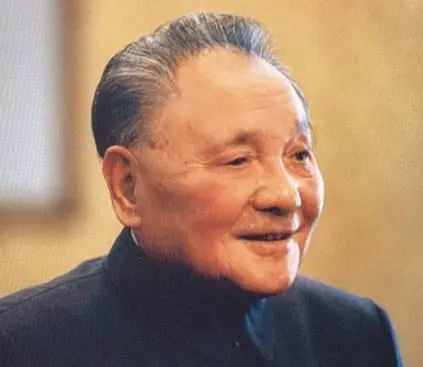
Deng Xiaoping was born into a wealthy Szechuan family and was educated overseas in France, where he met Zhou Enlai. On returning to China in 1924 he joined the Communist party. He endured the Long March and staved off some of the economic crisis of the Great Leap Forward by establishing a limited free market. During the Cultural Revolution he was publicly humiliated for his moderate ideals and had to work in a tractor factory in Xinjiang as a form of "re-education.” Deng favored a capitalist approach to the economy and, on his return to politics, these views made him a target of the Gang of Four. Deng was blamed for the 1976 Tian'anmen Incident (see above) and once more forced out of politics, but Mao's death and the arrest of the Gang of Four marked a turning point which saw Deng rise to the head of the CCP. Two years later Mao's chosen successor, Huo Guofeng, was ousted and Hu Yaobanginstated.
Deng quickly began the economic reforms that paved the way for a string of similar economically minded leaders to bring China to where it is today - capitalist in all but name. On a tour of Guangdong province in the early 1990s Deng famously remarked that "I don't care whether the cat is black or white as long as it catches mice,” reasserting China's capitalism, albeit under the auspices of "socialism with Chinese characteristics.” But economic and political reform did not go hand in hand. While Deng was praised for his economic policies, he will be remembered as the leader who authorized the Tian'anmen Square Incident(see below), a show of strength that resulted in worldwide condemnation. Deng died in 1997 and it was Jiang Zemin, groomed to be his successor, who oversaw the handover of Hong Kong.
Economic Liberalization
Deng's policies focused on economic liberalization to promote foreign investment and internal entrepreneurship and his Four Modernizations(agriculture, defense, industry and science) provided the platform for China's economic transformation and opening up to the world. Technological skill and competency reasserted themselves over ideological commitment as the cornerstones for development. Agricultural collectives were disbanded and farmers were allowed to sell any surplus product on the free market. The number of state-owned businesses was dramatically reduced and there was a distinct shift from heavy to light industry. Special Economic Zonessuch as Shenzhen were designated and the benefits available attracted large-scale foreign investment. Entrepreneurial capitalism was encouraged and, with its huge population and low wages, China quickly reaped the rewards of international trade and has become the workshop of the world. Since the start of reforms China has maintained an economic growth rate of 7% and cities like Shenzhen and Shanghai's Pudong have sprung up almost overnight.
Tian'anmen Square Incident (1989)
But political and social change didn't follow economic reform and, while artists, writers and even the press enjoyed a measure of freedom in the 1980s, the party's true hand was laid out for all to see in Tian'anmen Square in 1989. Deng had sidelined Hu Yaobang in 1987 for his liberal views and when Hu died in 1989, mourning gave way to full-scale protests in Tian'anmen Square. Martial law was ordered in May but, in spite of this, by June there were a million people gathered in the square, organized by the student leaders Wang Dan, Chai Lin and Wu'er Kaixi. Although predominantly students pushing for greater political and social freedom, there was also an urban worker contingent, who were protesting against the endemic corruption within the system, rapid inflation and the economic reforms which had cost many of them their jobs. When the protesters' demands went unanswered, a thousand-plus students went on a hunger strike. Fifty thousand PLA troops were ordered into Beijing and on June 3rd tanks rolled into Tian'anmen Square. The following day soldiers fired into the unarmed crowd and hundreds, possibly thousands, were killed, although it seems unlikely any genuine statistics will ever emerge.
Foreign journalists who had been covering Mikhail Gorbachev's visit to Beijing witnessed much of what happened and, although satellite links were shut down, the world was given a grisly insight into modern China. International condemnation was followed by arms embargoes and there were protests around the globe. The Tian'anmen Square Incident had also illustrated a rift between the hardliners and more progressive elements within the party. While premier Li Peng was in favor of using force to remove the protesters, others such as party secretary Zhang Ziyang, who was dismissed, sympathized with them. Even now the June 4th Movement, as it is known in party-speak, is seldom discussed in China, and you should be sensitive asking questions about it - only do so in private and if you know the person well.
Jiang Zemin
After the Tian'anmen Square Incident Jiang Zemin, the former Mayor of Shanghai, who was not connected to the events of June 1989, ascended the party ladder. He became General Secretary in 1989 and President in 1992, taking the reins of power when Deng died in 1997. Jiang oversaw the 1997 British return of Hong Kongwhich had been organized in 1984 (see Hong Kong, The Handover ). There was a countdown clock set in Tian'anmen Square and on June 30th there were handover celebrations around the country. Two years later Macaufollowed suit, albeit less dramatically.
Читать дальшеИнтервал:
Закладка:
Похожие книги на «CHINA's Three Gorges & Xi'an»
Представляем Вашему вниманию похожие книги на «CHINA's Three Gorges & Xi'an» списком для выбора. Мы отобрали схожую по названию и смыслу литературу в надежде предоставить читателям больше вариантов отыскать новые, интересные, ещё непрочитанные произведения.
Обсуждение, отзывы о книге «CHINA's Three Gorges & Xi'an» и просто собственные мнения читателей. Оставьте ваши комментарии, напишите, что Вы думаете о произведении, его смысле или главных героях. Укажите что конкретно понравилось, а что нет, и почему Вы так считаете.



